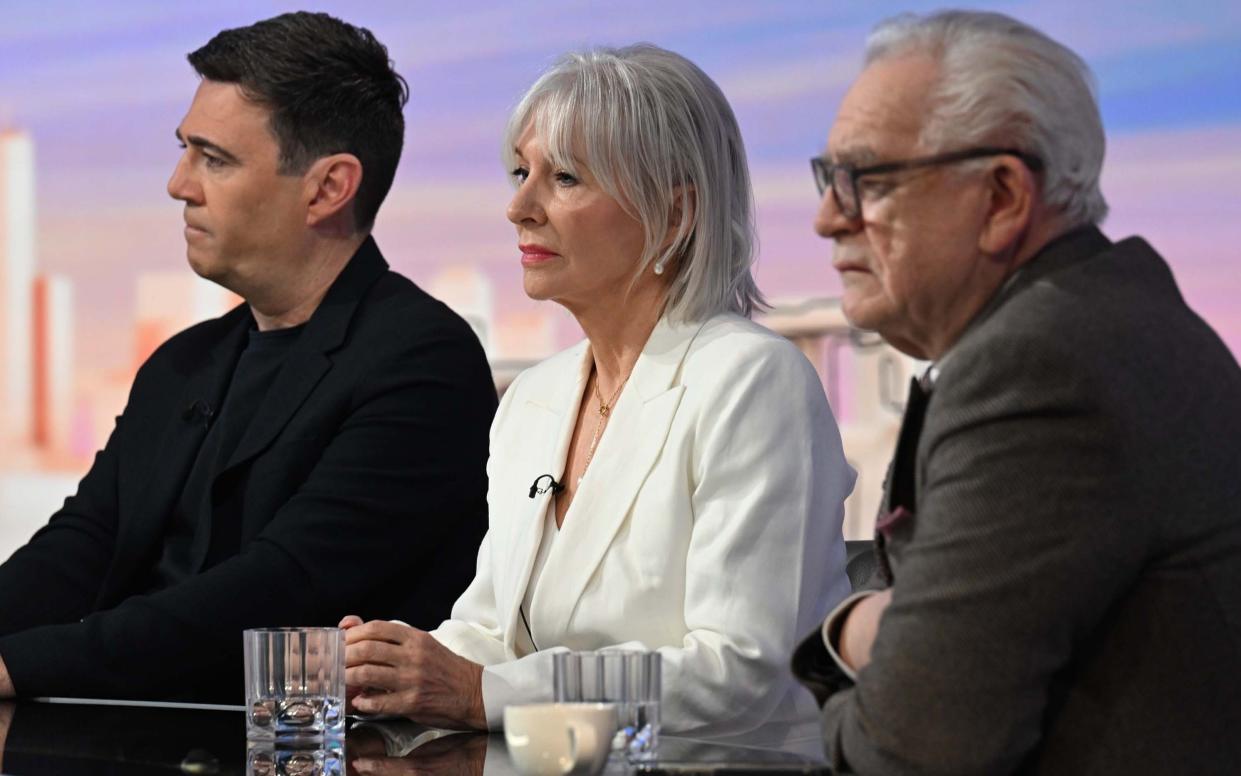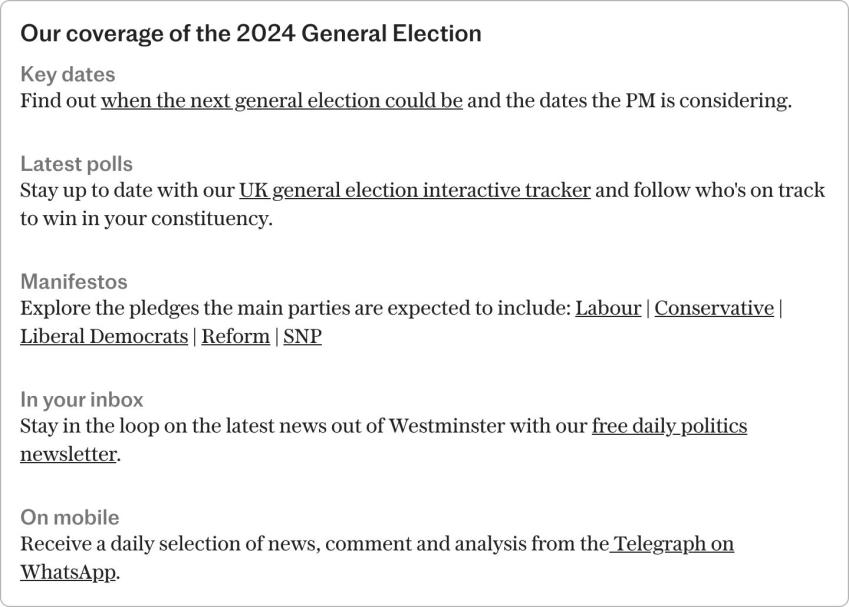Tories accuse BBC of ‘lefty Blairite bias’ over Laura Kuenssberg panel

The BBC has been accused of “lefty Blairite bias” as it was criticised for selecting a panel of Rishi Sunak critics to join its flagship Sunday politics show.
All three guests invited to debate the political issues of the day on the Sunday With Laura Kuenssberg programme have condemned Mr Sunak’s leadership to varying degrees.
The panel, which is supposed to represent views from across the political spectrum, consisted of Andy Burnham, the Labour Mayor of Greater Manchester, Brian Cox, the Succession star and self-proclaimed socialist, and Nadine Dorries, the former Tory MP who has been a fierce critic of Mr Sunak.
One Conservative candidate said the choices were most likely the result of the BBC “pricing in” the general election result, and therefore worrying less about Tory reaction to their “ingrained lefty Blairite bias”.
They said the panel’s composition could be down to one of three things: “Conservatives too busy campaigning to be there. Conservatives not able to come up with someone prepared to be on that panel. Or – and this I think is the most likely – BBC pricing in the general election result and thus worrying less about reaction from the Conservative Party to their ingrained lefty Blairite bias even than they were a few months ago.”
Broadcasters have to take particular care during an election campaign to present a balanced set of opinions, in line with impartiality rules set out by Ofcom, the TV watchdog.
Broadcasting rules
The official rulebook states that “due weight must be given to the coverage of parties and independent candidates during the election period”.
It adds: “In determining the appropriate level of coverage to be given to parties and independent candidates broadcasters must take into account evidence of past electoral support and/or current support.
“Broadcasters must also consider giving appropriate coverage to parties and independent candidates with significant views and perspectives.”
Mr Cox used to be a Labour supporter, once voicing election broadcasts for the party, but switched to the SNP in 2015.
Talking to Sky News about Logan Roy, the character he plays in the hit drama Succession last year, he said: “He’s the antithesis of everything I believe in. Everything ... I’m a socialist and I’m proud to be a socialist.”
During Sunday’s show, he said he was not a Conservative voter and never would be. But if he was, he said he would be concerned about “what’s happening to my party” – and particularly the influence of Nigel Farage, the Reform UK leader.
He has previously described the Tory Party as a “disgrace” and criticised the Rwanda migration scheme, branding it “shameful”.
Ms Dorries, the former culture secretary and close ally of Boris Johnson, has also been a prominent critic of Mr Sunak and launched a deeply personal attack on him when she stepped down as MP for Mid Bedfordshire – lashing out over his “failure” to reduce immigration, seize upon the advantages of Brexit and raising taxes.
She also accused the Prime Minister of having “completely abandoned the 2019 election-winning manifesto, adding: “What exactly is it you do stand for?”
Last summer, she refused to say whether she would vote for the Tories at the next election and warned that Mr Sunak was destined to lead his party to defeat.
A BBC spokesman said: “Over the course of the election period, we are ensuring guests and contributors invited on the programme represent a range of views from across the political spectrum, to uphold our commitment to due impartiality throughout. This will include a range of views held within political parties.”


 Yahoo News
Yahoo News 
